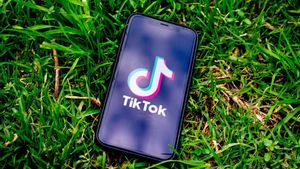JAKARTA - The Governor of Tennessee, Bill Lee, signed a new law on Thursday, March 21 aimed at protecting artists, especially musicians, from unauthorized use by artificial intelligence. The law is named "ELVIS Act," which stands for the Ensuring Likeness Voice and Image Security Act.
As artificial intelligence technology is growing, especially in music making, there are concerns about abuse of artwork and the identities of artists. The new law is a response to the development, by updating the law on the protection of personal rights in Tennessee to include protection against sound and images from unauthorized use by artificial intelligence.
Previously, the law in Tennessee protected names, images and similarities, but did not specifically address generative artificial intelligence models that could produce fake works with voices and images of a person without permission. Thus, the ELVIS Act strengthens the protection of artists in an era where technology is increasingly sophisticated.
SEE ALSO:
The Tennessee music industry, which is one of the state's important assets, provides support for this move. According to the governor's office, the Tennessee music industry made a significant contribution to the state's economy by providing more than 61,617 jobs and contributing about $5.8 billion to gross domestic product. The law is expected to help maintain the integrity and rights of artists amid rapid technological developments.
In addition, the ELVIS Act also reflects broader concerns about the impact of artificial intelligence technology. While this technology brings significant progress, there are concerns that its use could be misused for unethical purposes, including fraud and intellectual property rights abuses.
In a broader political context, discussions on artificial intelligence regulation are also ongoing at the national level. The administration of US President Joe Biden urged policymakers to take action, but to date, progress at the US Congress is still hampered by polarization between political parties.
The English, Chinese, Japanese, Arabic, and French versions are automatically generated by the AI. So there may still be inaccuracies in translating, please always see Indonesian as our main language. (system supported by DigitalSiber.id)


















